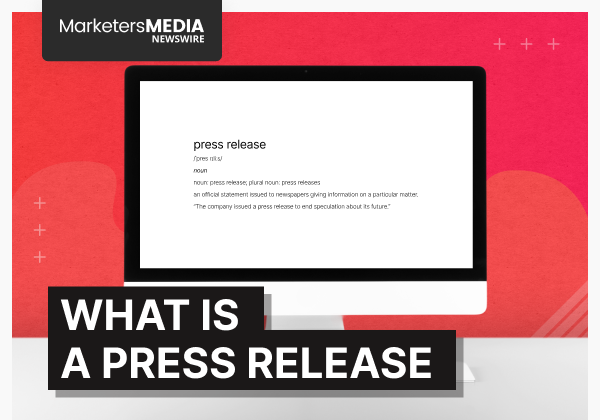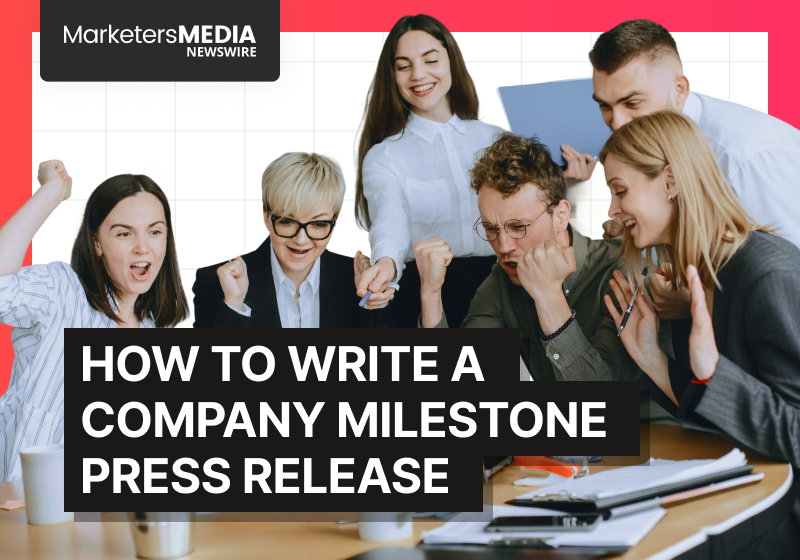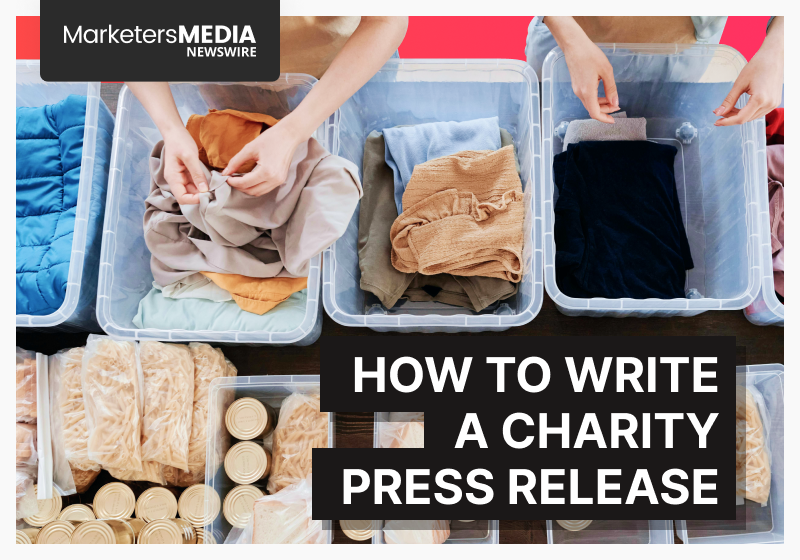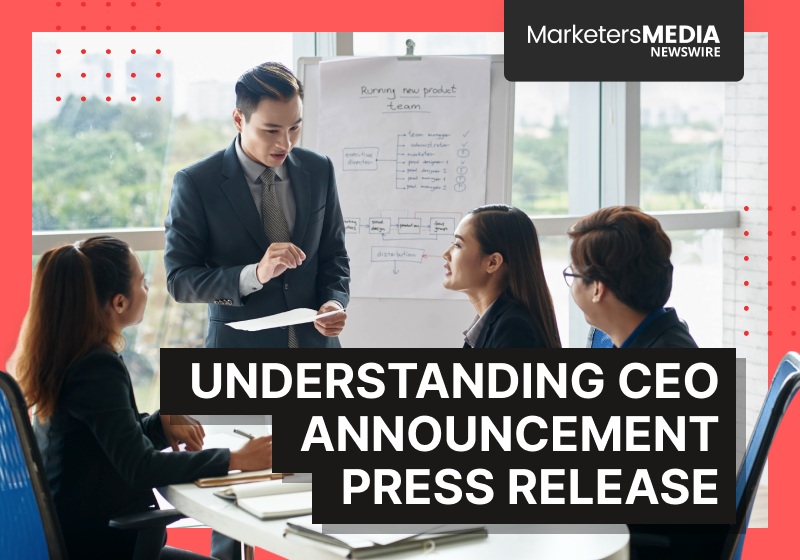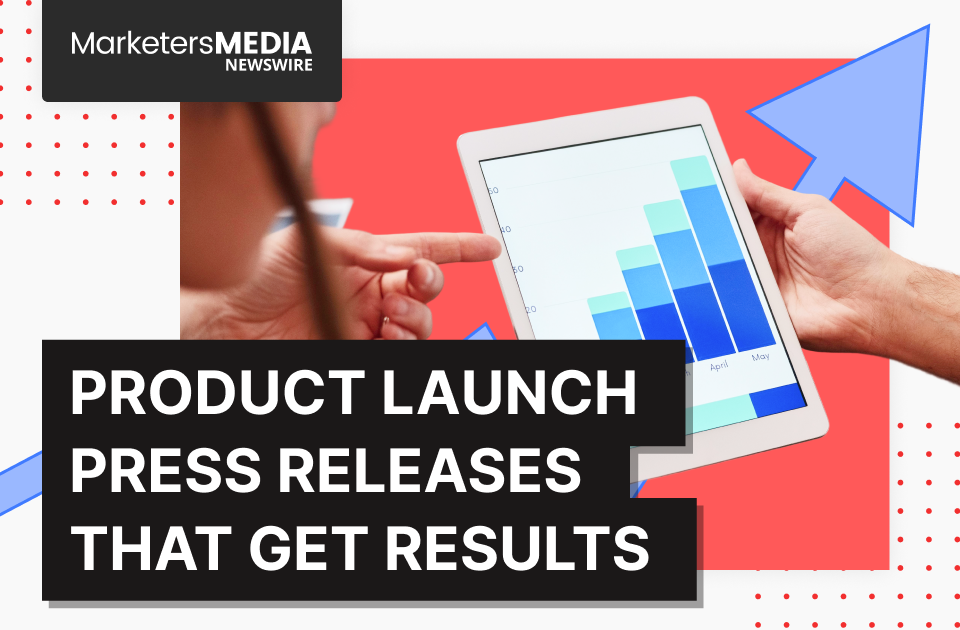You’ve probably heard the term "press release" and thought it sounded pretty grand, right?
The idea of sending something out to national or even international media can seem pretty daunting.
It might make you think of big companies making major announcements, far removed from what you might consider doing for your own business or organization.
But here's the truth: press releases aren’t just for huge corporations. They’re a versatile tool that any business can use to share important news.
Whether you’re launching a new product, announcing a big event, or just trying to get your brand noticed, a press release can be a super effective way to get the word out.
In this guide, we’ll break down what a press release really is, why it’s beneficial, and how you can write one that grabs attention. We’ll also show you how to get your press release in front of the right people, without feeling overwhelmed.
Let’s demystify the process and show you that writing and distributing a press release isn’t as intimidating as it might seem.
What is a Press Release?
A press release is a formal way to share newsworthy stories with the public. It's sent directly to journalists and media outlets to catch their interest so they cover your story.
By grabbing the attention of journalists and editors, a press release helps you get your news out there and gain media attention. It's all about making your announcement appealing so the media wants to write about it.
So, who typically uses press releases? Let's find out.
Who Uses Press Release?
#1 Press officer
Press officers use press releases to communicate official statements, announcements, and news from their organizations. Their main job is to make their announcements newsworthy so they catch the media's attention.
Press officers also use press releases to manage their organization’s image. Through well-crafted messages, they can shape and control the narrative, presenting their organization in the best possible light. This becomes especially crucial during a crisis. In such times, press releases are essential for disseminating accurate and timely information, helping to manage public perception and mitigate negative impacts.
#2 Reporter
Reporters view press releases as sources of news, leads for stories, and starting points for developing well-rounded news stories. They depend on reliable, fact-checked information in press releases. This helps them ensure the news is accurate, which is key for maintaining their credibility.
Press releases also offer fresh story ideas and angles, oftenleading to bigger investigative pieces or feature articles. They come with quotes from key figures and important data, which reporters can use to add depth and authority to their stories.
#3 Business and Organization
For businesses, press releases are a big part of their marketing and communication strategy. They help build brand awareness, manage public relations, and influence public perception.
Communicating major funding rounds or investments, or releasing updates about corporate social responsibility initiatives through press releases can generate media coverage and public interest, giving a boost to marketing efforts.
Regularly issuing press releases helps maintain a company’s image, showing that the organization is active and influential in its industry. They're also essential for addressing any issues or misinformation, allowing businesses to share positive news and manage their reputation.
Plus, press releases are a great way to communicate with stakeholders like investors, customers, and employees. They keep everyone in the loop about important company developments and achievements, fostering transparency and trust.
Why Use a Press Release?
Press releases are a powerful tool for getting the word out about your organization, and they come with a host of benefits. Here’s why you should be using press releases:
#1 Controlled Messaging
One of the best things about a press release is the control it gives you over your messaging. You get to decide exactly what information to share and how to present it, ensuring that your key messages are spot on.
This means you can highlight your achievements, share important updates, and set the tone just the way you want. Think of it as your chance to tell your story your way.
#2 Wide Reach
Press releases can reach a broad and diverse audience through media outlets. By distributing a press release, an organization can potentially reach millions of readers, viewers, and listeners across various platforms, including newspapers, magazines, TV, radio, and online news sites.
This extensive reach is particularly beneficial for spreading important news widely and quickly. A well-distributed press release can ensure that the news reaches a large audience, increasing the chances of it being picked up and shared by multiple media outlets.
#3 Credibility
When a reputable media outlet picks up your press release, it instantly gains credibility. Media coverage acts like a stamp of approval, making your announcement more trustworthy in the eyes of the public.
People are more likely to believe and engage with news that comes through established media rather than direct from a company. So, press releases help build trust and reliability.
#4 Cost-Effectiveness
Compared to traditional advertising, press releases are a budget-friendly way to gain publicity. While advertising can be expensive and requires a substantial budget, press releases can be distributed at a fraction of the cost.
Plus, when your press release is picked up by the media, you get free coverage, which can be even more impactful than paid ads. This cost-effectiveness makes press releases an attractive option for organizations of all sizes, especially those with limited marketing budgets.
#5 SEO Benefits
Optimized press releases with the right targeted keywords can boost your visibility in search engine results, driving more organic traffic to your website.
Especially in this day and age, being found online absolutely crucial. By including relevant keywords and phrases, you improve your chances of showing up in search results, attracting more visitors to your site and boosting your online presence.
#6 Attracting New Customers
Announcing new products, services, or company milestones through press releases can catch the eye of potential customers. Well-crafted press releases generate interest and excitement, leading to more inquiries and sales.
They’re a great way to introduce your brand to new customers and highlight what makes your offerings special, driving growth and expansion.
What Makes a Great Press Release?
A great press release starts with the right format.
Why?
Because a well-structured press release makes it easier for journalists to quickly grasp your key message, find important details, and decide if your news is worth covering.
When your press release is formatted correctly, it increases the chances that your story will be picked up and published.
Here’s how to structure and craft a press release that captures attention and conveys your message effectively:
#1 Headline
Your headline is the first thing people will see, so make it clear, concise, and attention-grabbing. It should give a snapshot of the news and make people want to click to learn more.
Example:
#2 Summary
The summary provides a brief overview of the main points of the press release. It gives readers a quick preview of what the announcement is about.
Example:
#3 Dateline
The dateline includes the release date and the originating city of the press release. It sets the context for the timing and location of the announcement.
Example:
#4 Body Paragraphs
You should answer the 5W1H – "who, what, when, where, why, and how" of your news right at the beginning of the body paragraph, so it grabs the reader’s attention early with all the key details and encourages them to continue reading.
Then, elaborate more on the details, context, and supporting information. This is also where you can include quotes from key figures, statistics, and other relevant data.
Example:
#5 Boilerplate
The boilerplate is a standard paragraph at the end of your press release that provides background information about your company. It should be brief and informative.
Example:
#6 Contact Information
Ensure you include clear contact details so journalists know how to reach you for more information. This typically include a name, phone number, and email address.
Example:
A Few Additional Tips for Writing:
- Make sure your press release contains information that holds value for your target audience. Ask yourself if the news is timely, relevant, and interesting.
- Include quotes from key figures within your organization to add credibility and a human element to your story. Quotes should be meaningful and provide insight or perspective.
- Guide your readers towards the desired outcome, whether it's visiting a website, attending an event, or contacting you for more information. Make your call to action clear and compelling.
For a detailed, step-by-step guide on crafting each section of your press release, check out our comprehensive press release 101 blog post here — This is where we walk you through the processes.
How to Distribute a Press Release?
You've got your press release ready to go. Now let's get it in front of the right folks. Here are some ways to do just that:
#1 Emailing Directly to Media Contacts
Compile a list of journalists, editors, and bloggers who cover your industry or beat. This can be done by researching online, attending industry events, or using media databases. The more targeted your list, the better your chances of getting coverage.
Challenges:
- This method can be time-consuming and there’s no guarantee that your press release will be picked up. Additionally, your reach might be limited to the contacts you have.
- However, building and nurturing these relationships can lead to long-term benefits and more consistent media coverage.
#2 Social Media Promotion
Identify which social media platforms are most relevant to your audience. Twitter, LinkedIn, and Facebook are commonly used for press release distribution. Tailor your posts to fit each platform’s style and audience.
Challenges:
- Requires active engagement to be effective. You need to interact with your audience, respond to comments, and keep the conversation going.
- Social media can be less targeted compared to direct emailing or newswire services.
- However, the potential for viral sharing and broad reach makes it a valuable tool in your distribution strategy.
#3 Utilizing Newswire Services
Newswire services are platforms that distribute press releases to a wide network of media outlets, journalists, and newsrooms. They offer broad distribution and can reach a diverse audience, including national and international media.
How Newswire Services Work:
- You create an account with a newswire service, like MarketersMEDIA Newswire, choose the distribution package that suits your needs, and submit your press release. These services often have a vast network of media contacts and provide options to target specific industries, regions, or demographics.
If you're looking for a reliable newswire service, MarketersMEDIA Newswire is your best bet. By leveraging their extensive network and expertise, you can ensure your press release reaches the right people and makes the impact you desire.
Ready to get your news out there? Start with these 3 steps:
1. Sign up an account.
2. Choose a plan that best fits your needs.
3. Submit your press release.
Still not sure what kind of content to include in a press release? Check out these successful press release examples here.
Seeing how others have done it can provide valuable insights and ideas for your own release.
Now, start writing and distributing your press release today.
Free Press Release Template
Tell us where to send your PDF:
